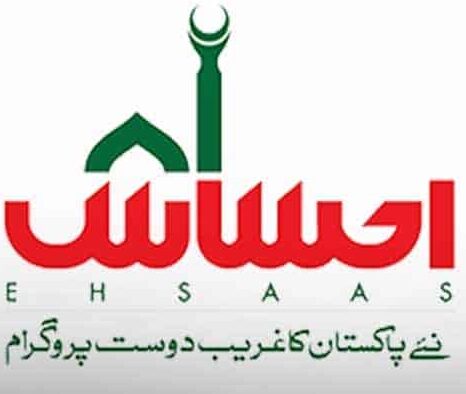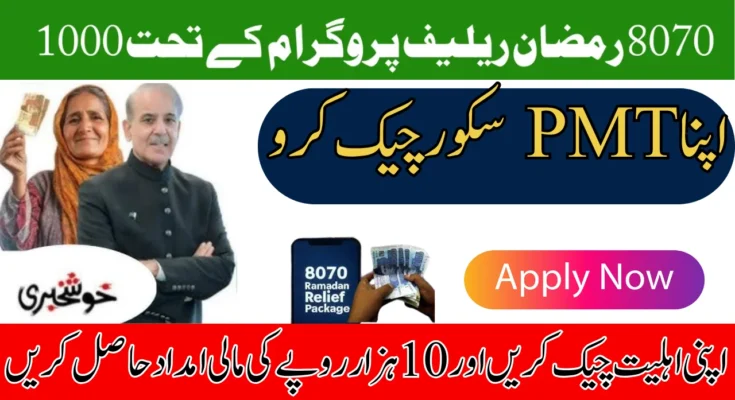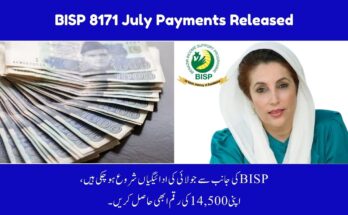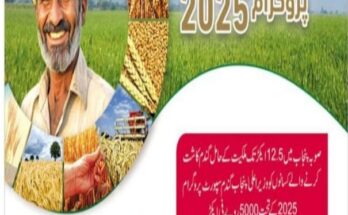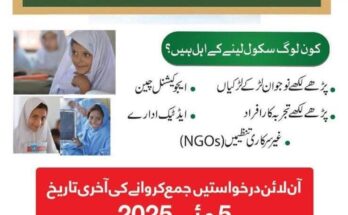Introduction
The holy month of Ramadan is a time of spiritual reflection, fasting, and community bonding for Muslims worldwide. In Pakistan, where economic challenges often exacerbate the difficulties faced by low-income households, the Punjab government has consistently stepped in to provide relief during this sacred period. The 8070 Ramzan Relief Package 2025, spearheaded by Punjab Chief Minister Maryam Nawaz Sharif, is a flagship initiative designed to alleviate the financial burdens of deserving families. This program aims to provide Rs. 10,000 in financial assistance, along with essential food supplies, to approximately 3 million households across Punjab. With a budget of Rs. 30 billion, the initiative underscores the government’s commitment to ensuring that no family goes hungry during Ramadan. This article explores the details of the 8070 Ramzan Relief Package 2025, including its objectives, eligibility criteria, registration process, payment distribution methods, and its broader socio-economic impact.
Objectives of the 8070 Ramzan Relief Package
The 8070 Ramzan Relief Package 2025 is rooted in the principle of social welfare, aiming to support low-income families who struggle to afford basic necessities during Ramadan. The primary objectives of the program are:
- Financial Assistance: To provide Rs. 10,000 to eligible households, enabling them to purchase essential food items and meet other household expenses during Ramadan.
- Food Security: To distribute a comprehensive ration package containing staples like flour, ghee, sugar, rice, lentils, tea, and salt, ensuring families have access to balanced nutrition.
- Economic Relief: To mitigate the impact of inflation, which has significantly reduced the purchasing power of low-income households in Pakistan.
- Dignity and Ease: To allow families to observe Ramadan with dignity, free from the stress of financial constraints.
- Transparency and Accessibility: To implement a streamlined, digitized registration and distribution system to ensure that aid reaches the most deserving households efficiently.
By addressing these objectives, the Punjab government seeks to foster a sense of community and solidarity, ensuring that the spirit of Ramadan is upheld even in the face of economic adversity.
Eligibility Criteria
To ensure that the 8070 Ramzan Relief Package reaches those who need it most, the Punjab government has established clear eligibility criteria. These criteria are designed to prioritize low-income households and vulnerable groups. The key requirements include:
- Residency: Applicants must be permanent residents of Punjab.
- Income Threshold: The household’s monthly income should be below Rs. 50,000.
- Poverty Measurement Tool (PMT) Score: Applicants must have a PMT score below 34, as determined by the Punjab Socio-Economic Registry (PSER) survey.
- BISP Enrollment: Families already registered under the Benazir Income Support Programme (BISP) are automatically eligible.
- Special Considerations: Priority is given to households with disabled individuals, chronic disease patients, or other vulnerable groups.
- Valid CNIC: The head of the household must possess a valid Computerized National Identity Card (CNIC).
- PSER Survey Completion: Completion of the PSER survey is mandatory for registration, as it assesses the financial condition of applicants.
These criteria ensure that the assistance is distributed fairly and reaches the most economically disadvantaged households. Importantly, individuals receiving aid from other government programs are typically ineligible, preventing overlap and ensuring equitable distribution of resources.
Registration Process
The Punjab government has made the registration process for the 8070 Ramzan Relief Package 2025 simple and accessible, offering both online and offline options to accommodate diverse populations. The process is centered around the Punjab Socio-Economic Registry (PSER) survey, which collects data on household income, family size, and financial status. Below is a step-by-step guide to registering for the program:
Online Registration
- Visit the Official Website: Go to the PSER portal at pser.punjab.gov.pk.
- Create an Account: Enter your CNIC number, mobile number, email address, and a secure password to set up an account.
- Complete the PSER Survey: Log in and fill out the survey form with accurate details about your household’s income, family members, and financial status.
- Verify Your Account: An OTP (One-Time Password) will be sent to your registered mobile number for verification.
- Review and Submit: Double-check all information for accuracy and submit the application.
- Confirmation: Upon successful submission, you will receive a confirmation SMS from 8070, indicating that your application is under review.
SMS-Based Registration
- Send CNIC Number: Open your phone’s messaging app and type your 13-digit CNIC number without dashes.
- SMS to 8070: Send the message to 8070.
- Eligibility Confirmation: You will receive a response confirming your eligibility status. If eligible, proceed with the full registration via the PSER portal or a Union Council office.
In-Person Registration
For those who face difficulties with online or SMS registration, the Punjab government has set up Union Council offices across the province. Applicants can visit their local office with their original CNIC, where representatives will conduct the PSER survey and complete the registration process on their behalf.
To check eligibility after registration, applicants can send their CNIC number to 8070 via SMS and receive a confirmation message. The government advises completing registration before the end of Sha’ban (the month before Ramadan) to ensure timely processing. Delays in registration or fund withdrawal may result in disqualification, so prompt action is critical.
Payment Distribution Methods
The 8070 Ramzan Relief Package 2025 offers multiple payment distribution channels to ensure convenience and accessibility for beneficiaries. Eligible households receive Rs. 10,000 through one of the following methods:
- Money Orders: A pay order or check, accompanied by a personalized letter from Chief Minister Maryam Nawaz Sharif, is delivered to the registered home address via post.
- Cash Centers: The Punjab government has established 18,000 cash centers across the province, where beneficiaries can collect their funds using their CNIC.
- Bank Transfers: Funds are transferred directly to accounts at designated banks, such as the Bank of Punjab, HBL, UBL, or Bank Alfalah. Beneficiaries can withdraw cash from ATMs or bank branches.
- Mobile Banking Services: Payments can be accessed through services like Easypaisa, UBL Omni, HBL Konnect, and Alpha Pay, allowing beneficiaries to withdraw funds without visiting physical centers.
- Ehsaas Centers and Union Council Offices: For those without bank accounts, funds can be collected from Ehsaas Centers or Union Council offices.
The Punjab government has emphasized that all payment methods are secure and free of charge. Beneficiaries are urged to use official channels and beware of scams or fraudulent schemes. Additionally, the ration package, which includes essential food items like flour, ghee, sugar, rice, lentils, tea, and salt, is distributed through designated centers or delivered to beneficiaries’ homes in some cases.
Socio-Economic Impact
The 8070 Ramzan Relief Package 2025 is more than just a financial aid program; it is a strategic intervention to address systemic economic challenges in Punjab. By targeting 3 million households, the initiative reaches approximately 15-18 million individuals, given the average household size in Pakistan. The program’s impact can be analyzed across several dimensions:
- Economic Relief: The Rs. 10,000 cash assistance provides immediate relief to low-income families, enabling them to purchase food and other essentials during Ramadan. This injection of funds also stimulates local economies, as beneficiaries spend at local markets and shops.
- Food Security: The ration package ensures that families have access to nutritious food, reducing the risk of malnutrition during the fasting period.
- Social Equity: By prioritizing vulnerable groups like the disabled and chronically ill, the program promotes inclusivity and social justice.
- Digital Transformation: The use of a digitized registration and payment system enhances transparency and efficiency, reducing the risk of corruption and mismanagement seen in previous relief efforts.
- Community Solidarity: The initiative fosters a sense of community by ensuring that no family is left behind during Ramadan, reinforcing the values of compassion and mutual support.
Moreover, the program aligns with broader national goals of poverty alleviation and economic stabilization. By complementing existing schemes like the Benazir Income Support Programme, it strengthens Pakistan’s social safety net.
Challenges and Recommendations
While the 8070 Ramzan Relief Package 2025 is a commendable initiative, it faces certain challenges that could affect its efficacy:
- Technical Issues: Delays in SMS responses or website glitches may hinder registration for some applicants.
- Awareness Gaps: Rural and remote communities may lack awareness of the program or access to registration facilities.
- Fraud Risks: Scams targeting vulnerable beneficiaries could undermine trust in the program.
- Logistical Constraints: The distribution of rations and funds to 3 million households requires robust logistics and coordination.
To address these challenges, the Punjab government could consider the following recommendations:
- Enhance Outreach: Launch awareness campaigns through local media, mosques, and community leaders to ensure all eligible families are informed.
- Strengthen Technical Infrastructure: Invest in robust servers and helplines to handle high registration volumes and resolve technical issues promptly.
- Expand Access Points: Increase the number of Union Council offices and mobile registration units in rural areas.
- Anti-Fraud Measures: Publicize warnings about scams and establish a dedicated helpline (e.g., 0800-02345) for reporting fraudulent activities.
Conclusion
The 8070 Ramzan Relief Package 2025 is a vital lifeline for low-income families in Punjab, embodying the spirit of compassion and solidarity that defines Ramadan. By providing Rs. 10,000 in financial assistance and essential food supplies to 3 million households, the Punjab government, under the leadership of Chief Minister Maryam Nawaz Sharif, is taking concrete steps to alleviate economic hardship. The program’s streamlined registration process, diverse payment options, and focus on transparency set a high standard for social welfare initiatives. However, its success will depend on effective implementation, robust outreach, and proactive measures to address logistical and technical challenges. For eligible families, the message is clear: complete your PSER survey, register promptly, and secure your assistance to observe Ramadan with dignity and ease. This initiative not only provides immediate relief but also lays the groundwork for a more inclusive and equitable society in Punjab.
